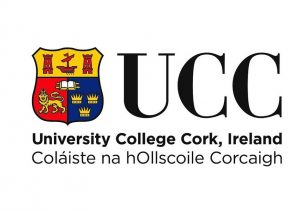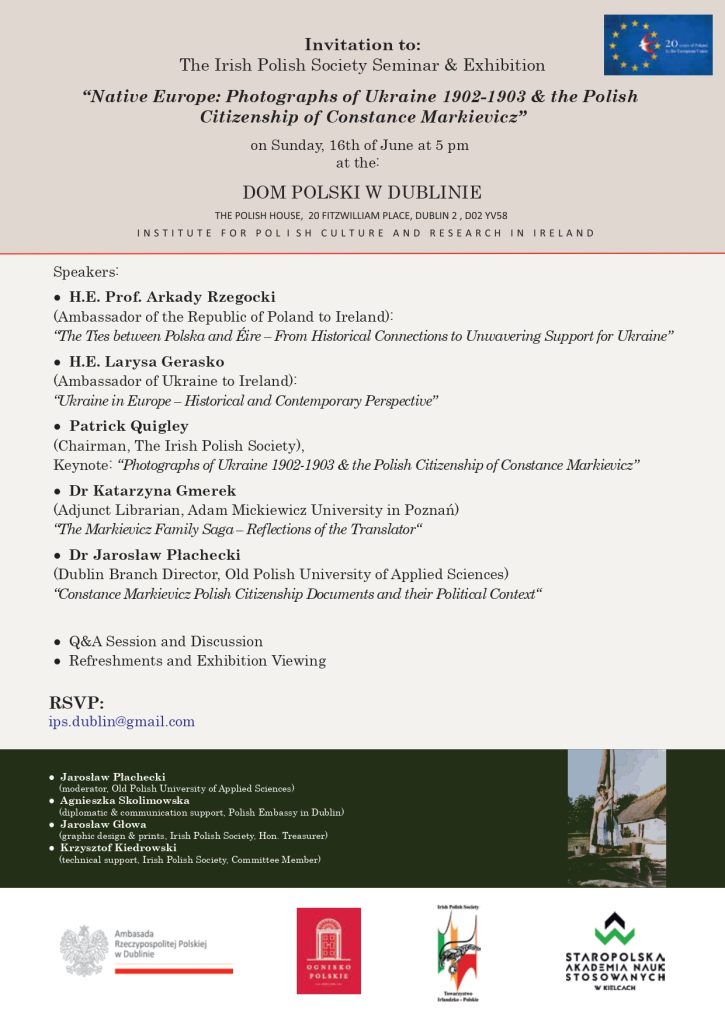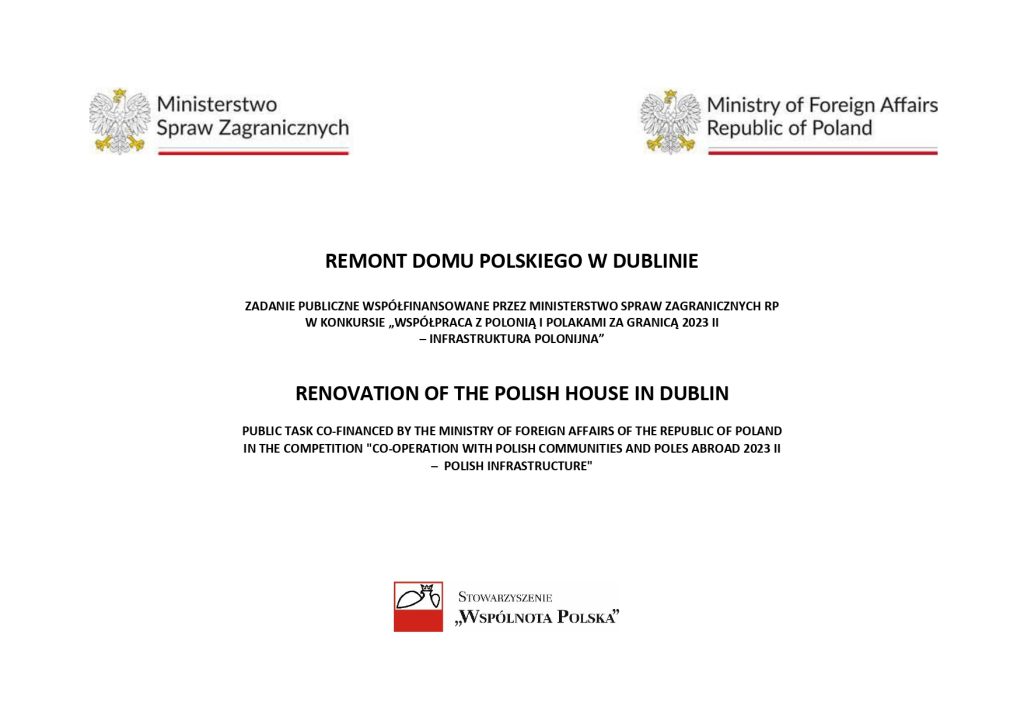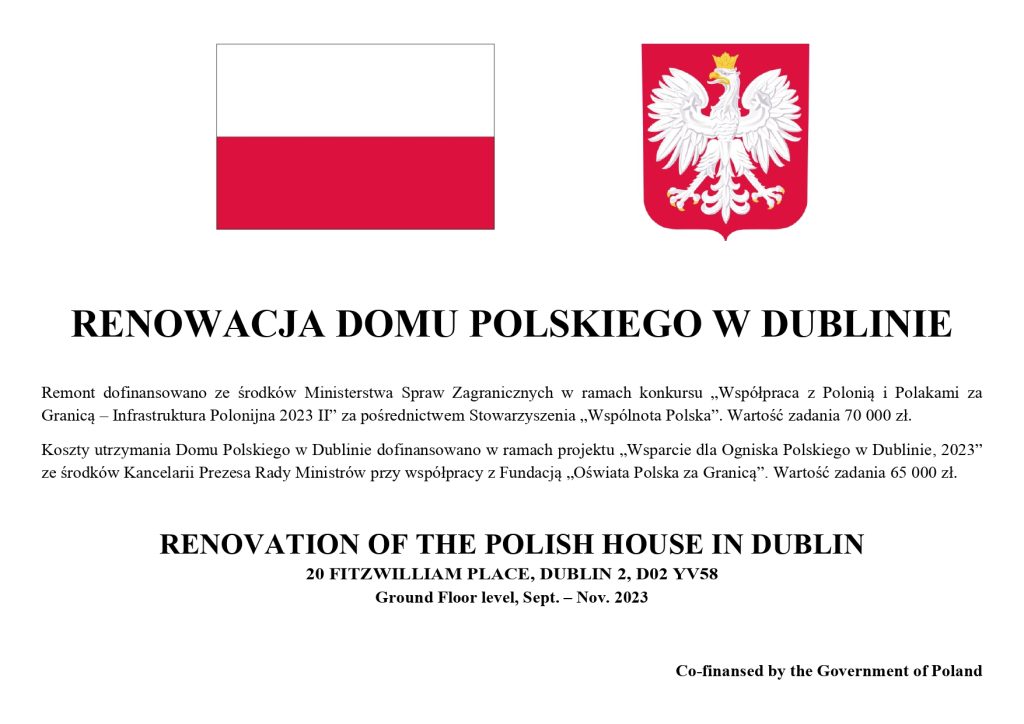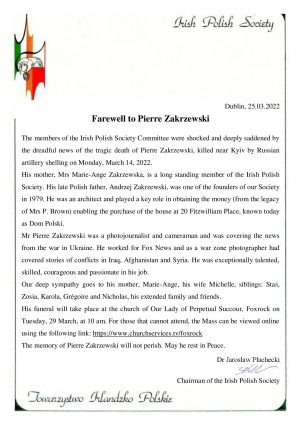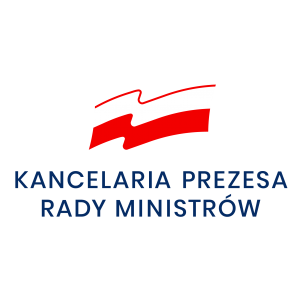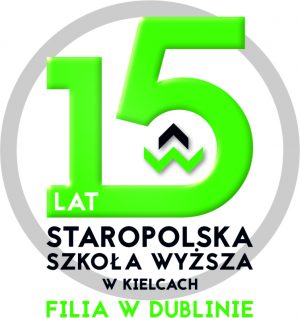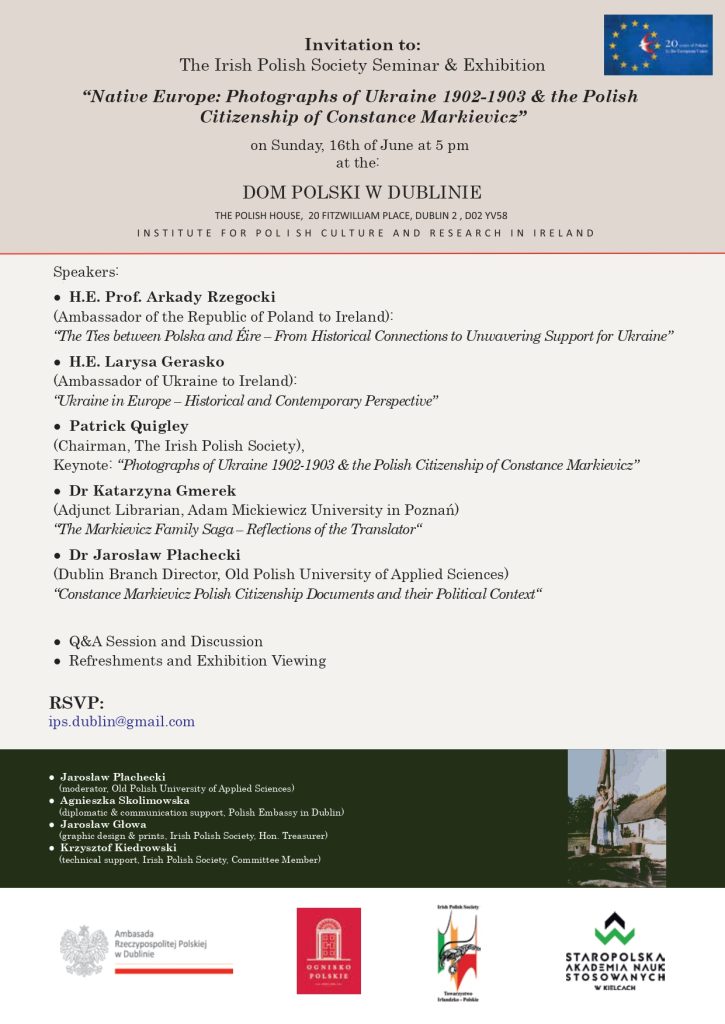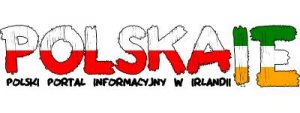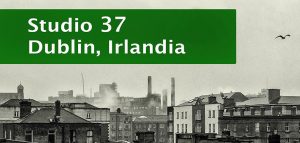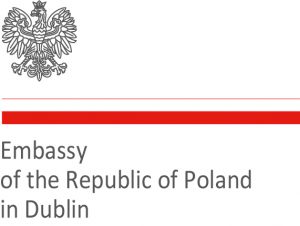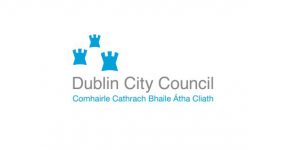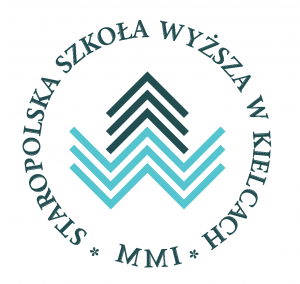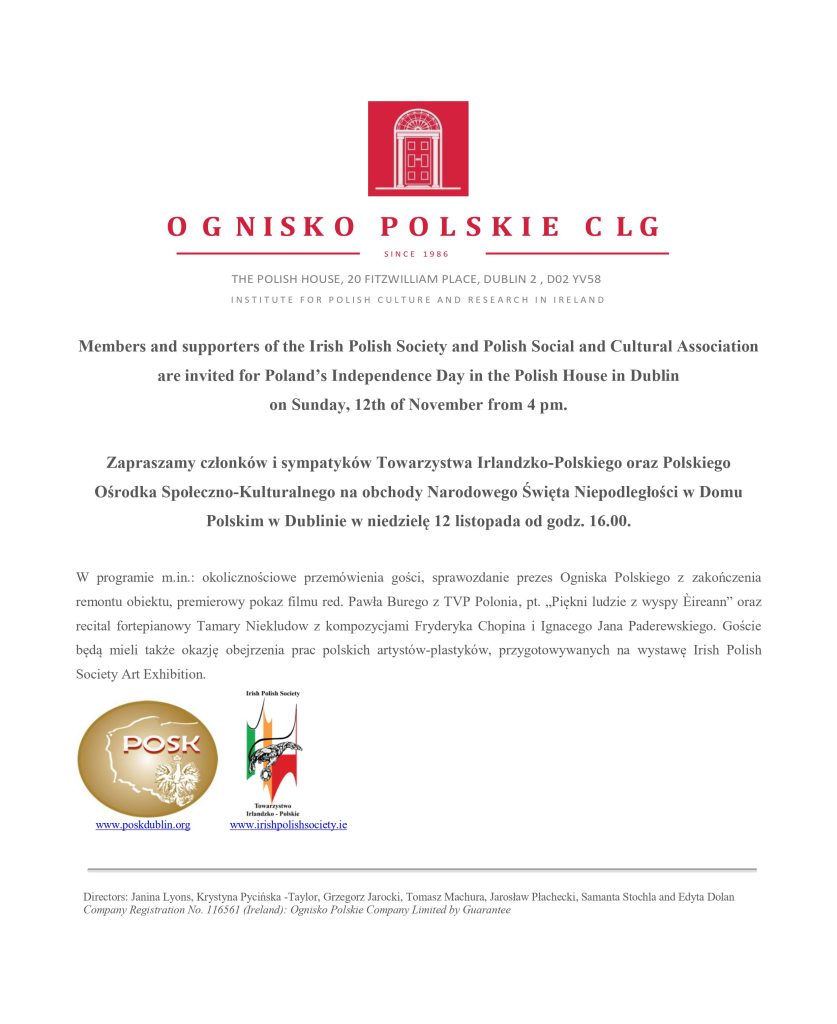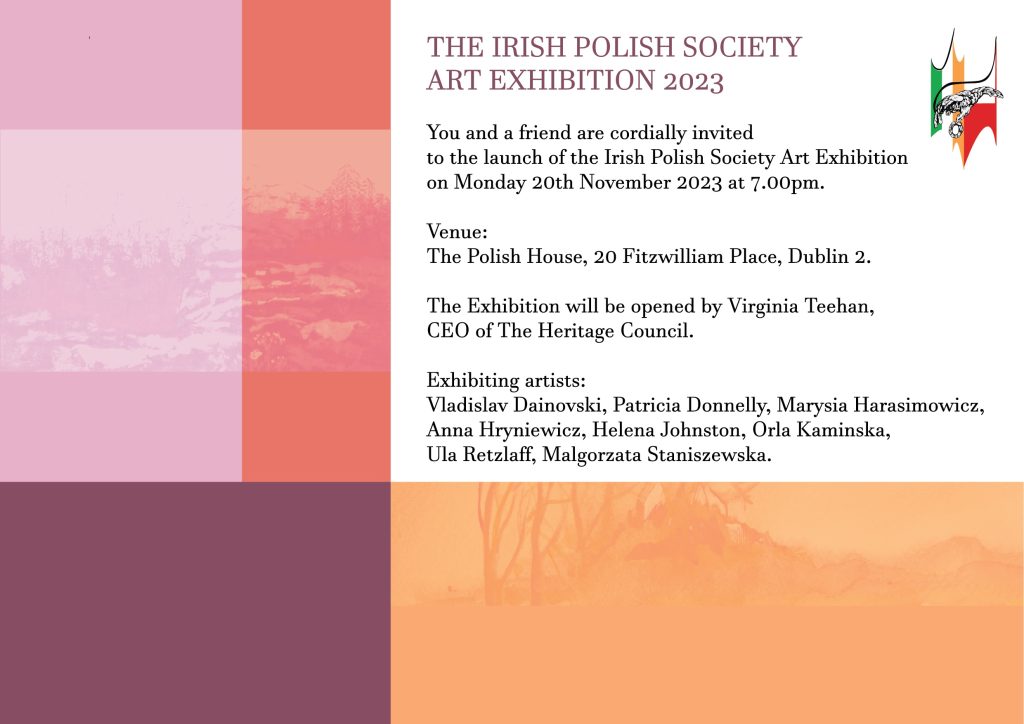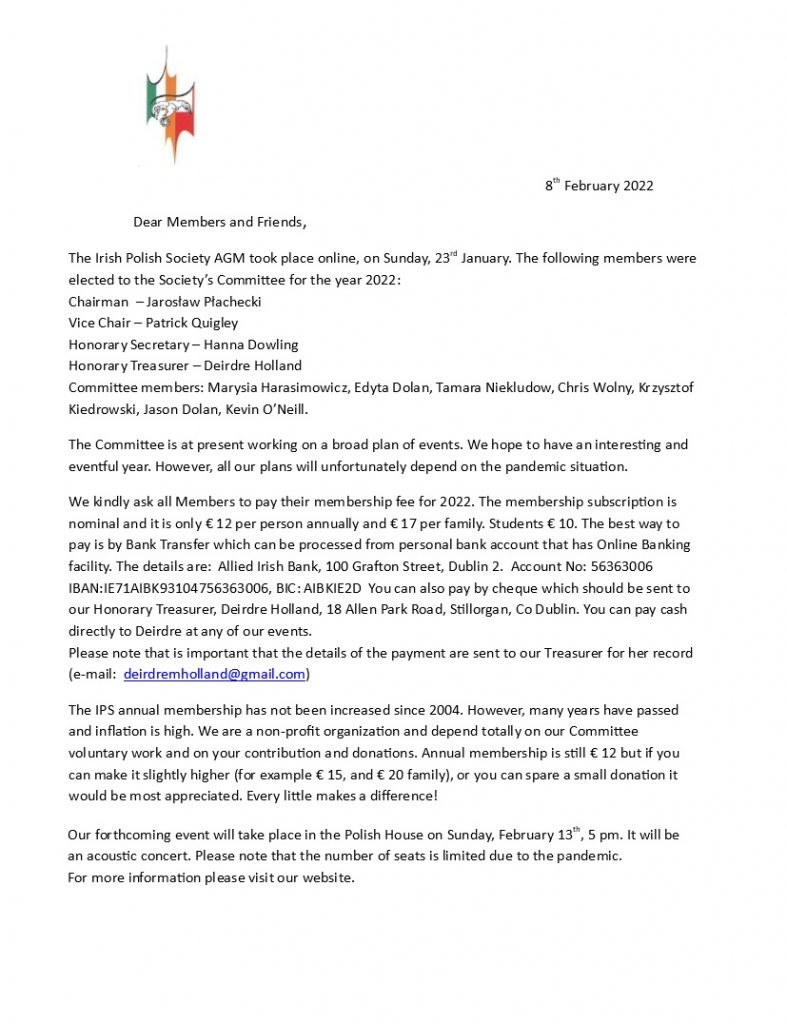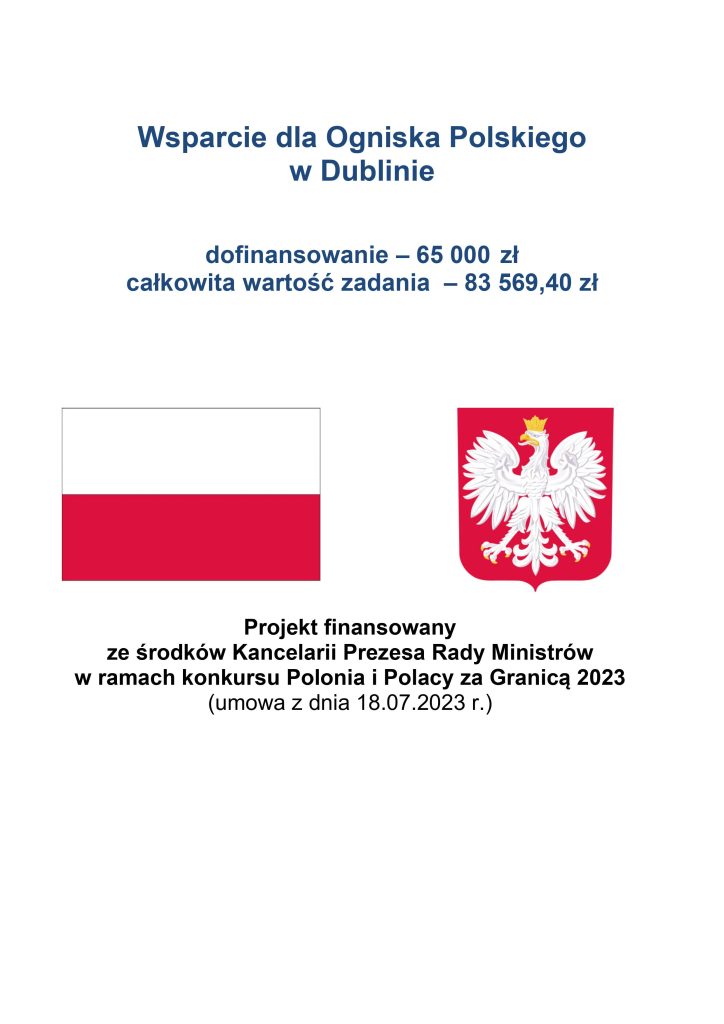“Escape to Victory? Cork, Ireland and the post-war European refugee question”
May 28, 2018 by IPS · Leave a Comment
 The Irish Polish Society invites you to an evening of historical reflection on the stories of Europeans who sought refuge in Ireland in the 1940s . The lecture will be delivered by Gabriel Doherty of the School of History at UCC on Saturday the 2nd of June at 8 pm at the Polish House, 20 Fitzwilliam Place, Dublin 2. This event is part of the PolskaEire Festival which is organized under the auspices of the Polish Embassy in Dublin. Light snacks and refreshments will be served – courtesy of the Polish Embassy.
The Irish Polish Society invites you to an evening of historical reflection on the stories of Europeans who sought refuge in Ireland in the 1940s . The lecture will be delivered by Gabriel Doherty of the School of History at UCC on Saturday the 2nd of June at 8 pm at the Polish House, 20 Fitzwilliam Place, Dublin 2. This event is part of the PolskaEire Festival which is organized under the auspices of the Polish Embassy in Dublin. Light snacks and refreshments will be served – courtesy of the Polish Embassy.
At approximately 1pm, on Friday 30 September 1949, the Victory, a Second World War-vintage ship docked with no advance notice in Cork harbour. On board were over 350 refugees from the various states in central and eastern Europe that had either fallen under Communist rule in recent years, or, it was feared, might do so in the immediate future – including Poles, Estonians, Lithuanians, Latvians, Finns and Yugoslavs. They had sailed from Gothenburg some days before with the intention of crossing the Atlantic to a new life in Canada. Unfortunately issues had developed with regard to the sea-worthiness of the ship that forced it to dock in Cork, in order to seek repairs.
Thus began a year-long diplomatic and humanitarian saga focussed on the correct policy to be conducted towards the refugees. It was quickly discovered that the Canadian government was opposed to the entry of many of the passengers on board – few of whom had entry visas for the country. But it was clearly also impossible for them to return to their home countries, given the prevailing atmosphere in the divided Europe at the time. Questions were also asked about the responsibility of the Swedish government in the matter, but most of the international spotlight fell on the response of the Irish government. The sight of such an over-crowded vessel inevitably drew comparisons with the ‘coffin ships’ that had sailed from the same port almost exactly a hundred years before at the time of the Great Famine, and the imbroglio over the ship, and its passengers, also occurred at a time when many contemporary Irish citizens were being forced to leave their own country in search of employment overseas. The activities of the passengers during their enforced stay in Cork – in a disused army camp, which was taken over and run by the Irish Red Cross, with the refugees free to come and go as they pleased – has become part of the folklore of the city, with numerous tales of the interaction between the locals and these new, exotic, arrivals. Likewise the passengers themselves formed their own impressions of Cork and Corkonians – not least because during their extended stay, several babies were born to expectant mothers in the maternity hospitals within the city.
This illustrated lecture will offer an overview of the incident, beginning with an exploration of the circumstances that led to the departure of the ship, and its human cargo, from Gothenburg, proceeding to a discussion of the varied experiences arising from the year-long stay in Cork of at least some of the passengers, through to a discussion of the resolution of the impasse.
Gabriel Doherty teaches in the Department of History, University College Cork. He received his BA in Modern History from Oxford University, having studied at Magdalen College between 1986 and 1989. Dr Dermot Keogh is Professor of History at University College Cork. He was a Fulbright Professor in San Jose, California in 1983 and a Fellow at the Woodrow Wilson Center, Washington DC, in 1988. He has taken a special interest in the peace process in Northern Ireland and was commissioned to write a study of the history of the Catholic Church in the twentieth century by the Forum for Peace and Reconciliation.



